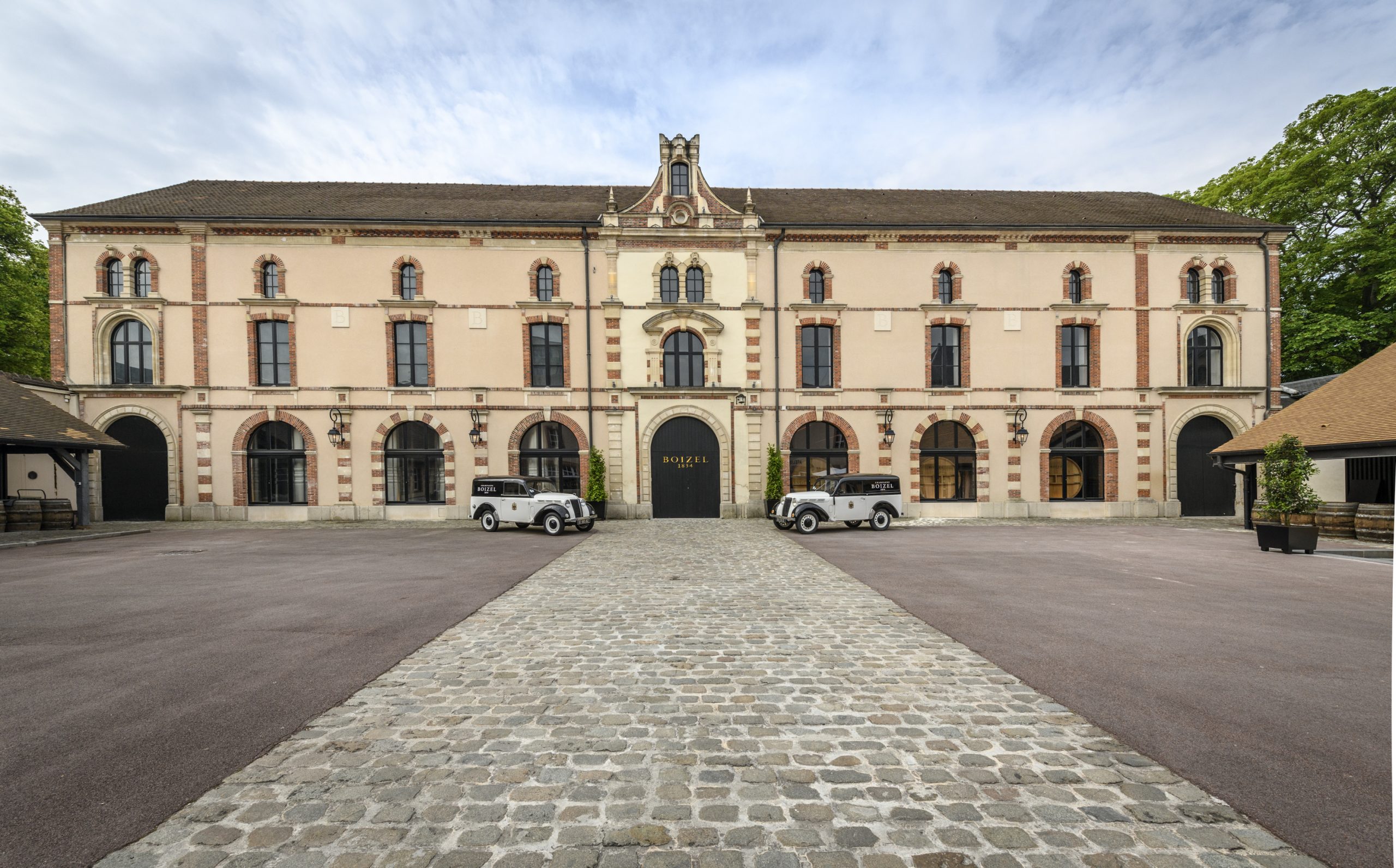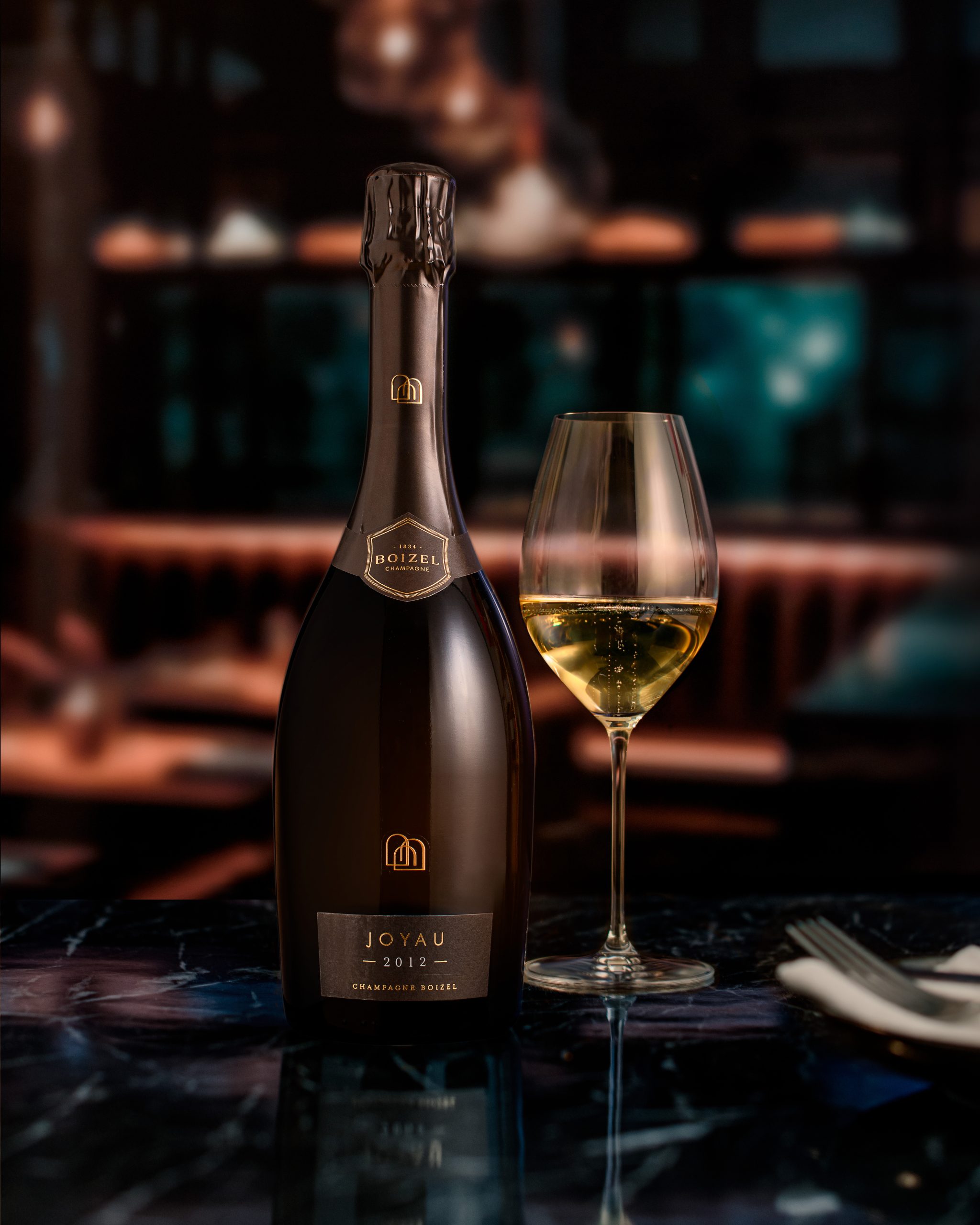Champagne Boizel adopts top-down approach, led by prestige cuvée Joyau
By Patrick SchmittThe Champagne house of Boizel is earning a growing reputation for quality – led by the jewel in the maison’s crown: prestige cuvée Joyau.

If there’s a Champagne marque that’s moving out of the shadows and upmarket right now, it’s Boizel. Founded in 1834, the maison is just a decade away from celebrating its 200th birthday, but has already made plenty of changes to be a bigger hitter when that moment comes.
Key to such developments have been investments in winemaking to hone the style and quality of Champagnes carrying the Boizel brand. Driving this is a new generation, which is now working on building awareness for Boizel – and this is being done with a top-down approach, focused on its critically-acclaimed and newly-repackaged prestige cuvée, Joyau.
Sixth-generation family member Florent Roques-Boizel tells db that key to the future of the house is a more global base in terms of demand. With around 50% of Champagne Boizel’s 500,000-bottle production going to domestic consumers in France, the plan is to increase the brand’s international footprint. And an important strategic move concerning this endeavour has come with the listing of Joyau 2008 on La Place de Bordeaux, in March 2023.
Roques-Boizel, who previously worked as an export manager at M Chapoutier Wines, joined his family’s maison in 2010, working alongside his parents at the business until they retired in 2018 – at which point Florent became CEO, and his brother, Lionel, deputy managing director.
Ahead of the retirement of Florent’s parents, the maison had invested in new winemaking facilities, with a raft of changes taking place, such as the installation of small stainless steel fermentation tanks, along with barrels and foudres. These were all fitted at a renovated winery that was finished in time for the 2017 harvest.
This work has not been made with the intention to alter the Boizel Champagne character, Roques-Boizel points out, but to allow the producer to increase the precision of its approach, and ensure the wines retain their freshness as the weather in the region warms.
“We don’t want to change the style of the house, but the climate is changing, and what makes Champagne special is freshness, tension and minerality – and it is more challenging to keep that,” Roques-Boizel points out.
One technique designed to ensure that Boizel Brut NV Champagnes are bright has been to use more Chardonnay in the blend, as well as looking to source more grapes from “chalky terroirs”.
The impact of foudres is also now being felt in the Champagnes – not in terms of taste, but texture, with 5% of the wines for the Brut Réserve and Rosé Absolu made in the large oak vessels to bring a bit of “roundness”.
Meanwhile, the dosages have dropped, with the highest level now 7 grams per litre (g/l), although most of the cuvées are extra brut, at 3-5g/l. The high quality of the base wines allows for such low levels, with only the first pressings used, while everything goes through malolactic conversion.
With a greater emphasis on the quality of the base wines used to make Boizel Champagnes has come an increased focus on communicating the origins of the grapes. “Historically, we had a blanc de blancs and blanc de noirs, but we have changed their positioning to promote the origin,” says Roques-Boizel. For example, the blanc de noirs, which is now entirely sourced from vineyards in the top crus of the Montagne de Reims, is now called ‘La Montagne’, while the blanc de blancs is labelled La Côte.
“We want to show Champagne lovers the different characters of the terroirs that compose our wines,” explains Roques-Boizel, stressing that wines are still made from a blend of sites. “Single-vineyard expressions are on trend, the blending is the savoir-faire of Champagne, and so remains the top of what we do.”
International renown
Indeed, Boizel’s aforementioned pinnacle expression, the prestige cuvée Joyau – meaning ‘jewel’ – is a blend of premiers and grands crus sites, chosen for their quality, cellaring-potential and complementary characters.
And it is this cuvée that is spearheading Boizel’s attempt to gain more international renown, with, since springtime last year –following a repackage – a new form of distribution: Joyau is now disseminated by nine of Bordeaux’s leading négociants. The aim of such a development is to expand the international distribution of the wine, with a particular focus on the Asian and European markets, with La Place de Bordeaux handling all nations outside France, Italy and the US.
Roques-Boizel has been delighted with the results, and “surprised” by all the new customers Joyau has gained in Europe, mentioning Switzerland, Germany, the UK and the Nordics as newly strong markets in particular.
This spring sees a new release, with Joyau 2012 launched by Boizel via La Place – a wine that was praised as one of the top picks by db Bordeaux correspondent Colin Hay, who gave it 95 points and called it “fantastic value”.

Having done so much work on the winery, packaging and distribution of his Champagnes, Roques-Boizel still has issues when it comes to building Boizel into an even bigger force. And those come with supply growth, particularly for his top-end blends. “Part of my responsibility is managing the relationships with our grower-partners, who have worked with us for generations – they are families and appreciate working directly with a family member,” he explains.
Such a personal approach from the most senior figure of the maison is important, stresses Roques-Boizel, because the growers that supply grapes to Boizel are key to its success, and they are in high demand from the region’s many producers.
Indeed, as he comments: “The competition for access to the best grapes can be greater than it is for customers in the best markets.”
In other words, Boizel is challenged at both ends of the supply chain, but effective with its response. The hands-on nature of the family members that manage Boizel is key to its successful positioning now, and will no doubt be even more important to its greater success in the future.
Related news
Allan Sichel: ‘Price readjustment is necessary’ for upcoming en primeur campaign
Ronaldo shocked as team mate drinks his £8,000 bottle of Petrus
